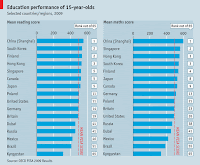I was wrong.
A Somerset County town spent more than $17,000 defending a $5 fee it charged a resident for a compact disc of a council meeting.
Tom Coulter filed a complaint with the New Jersey Government Record Council in October 2008, saying he should pay the actual cost of the CD to get the recording.
The state council this year sided with Coulter and found he should have paid about 96 cents.
Bridgewater paid more than $14,000 in legal fees defending the case. It had to pay $3,500 to Coulter for his legal fees and give him a $4.04 refund.
Coulter says the case shows a lack of common sense.
Township Attorney Alan Grant tells The Courier News of Bridgewater the legal fees would have been substantially lower had Coulter settled, as the township had offered.Oh boy. Of course, few stories are as simple as they might seem. In a separate blog post on the same site, it becomes clear that this type of legal fight is not uncommon, because it's not really a fight over 5 dollars--rather, it's a fight over what the public does and doesn't have the right to know.
The Open Public Records Act was passed because town officials were refusing to give residents records they were entitled to. Yet still, towns set up all sorts of arbitrary impediments to quash citizen requests for public records, like inflating their fees. And it’s not the municipal clerk who ultimately pays the price for this petty obstructionism. It’s the taxpayers.
Some towns say they raise records fees to account for the added cost of labor. But since citizens already pay the salaries of municipal clerks, why must they pay yet again so these people can do their jobs by preparing a public record?
Bridgewater ended up paying more than $14,000 to defend its case and $3,500 to Coulter for his legal fees, and giving him a $4.04 refund. “In hindsight, it is a lot of money, but we had to defend the ordinance,” said the township administrator, Jim Naples. Easy for a town official to say, since he won’t be reaching into his pockets to pay the penalty — he’ll be reaching into yours.At a time when Wikileaks is casting a broad light on the issue of what the government should and shouldn't be hiding from its citizens, this legal fight is both disheartening and disarming.
OPRA was passed because governments were taking extreme liberties by effectively classifying non-classifiable information, and yet still local governments are fighting protracted legal battles to protect their non-existent right to keep public records classified. When governments ring up legal bills like these, the result is that taxpayers are paying money for the right to give up their rights. That's a gross perversion of the public trust, and one that Bridgewater residents should be absolutely up in arms about.
When Jim Naples says "we had to defend the ordinance", he's in essence saying that he doesn't care about OPRA or the public trust. In this type of legal fight, the public loses either way--they either lose their rights under the law, or they have to pay hefty legal bills to protect them (without a choice in the matter). That's absolutely ludicrous. So congratulations, Bridgewater, New Jersey. You are a shining beacon of governmental abuse.
[NJ.com]
(For more context on the above cartoon--and on this whole issue in particular--read this piece. New Jersey residents should be absolutely rioting in the streets by now. Instead, it seems that those who challenge these abuses of power are derided for "wasting taxpayers' money" by forcing the issues into court. That's awful.)




